Scrolling Blog: January 2023

January 30, 2023
Weekly Column is Up

As I mentioned a few weeks ago, the Monday column will occasionally be a repeat of the Saturday newsletter. I thought it would happen only once or twice a month, but maybe not. Maybe the "Existence Strikes Back" columns will run every other week. We'll see. Next week, the Monday column will be exploring Voegelin's fourth gnostic trait.
Thanks to everyone who patronizes TDE through the Amazon affiliate links. It doesn't exactly pay the bills, but the small monetary recompense provides a nice dopamine release . . . and a few extra books for my shelves. Thanks again.
January 29, 2023
Kirk: $4.99
The Conservative Mind is currently available on Kindle for just $4.99.
That's a steal. I'm half-tempted to buy it, just so I have access to this beautiful book wherever I go, but I have a wife to answer to and a wedding to pay for.
Flannery Sighting
This a nice essay about today's political strife against the backdrop of Flannery O'Connor's "The Displaced Person." I didn't love the essay, but it's always good to see someone make Flannery relevant.
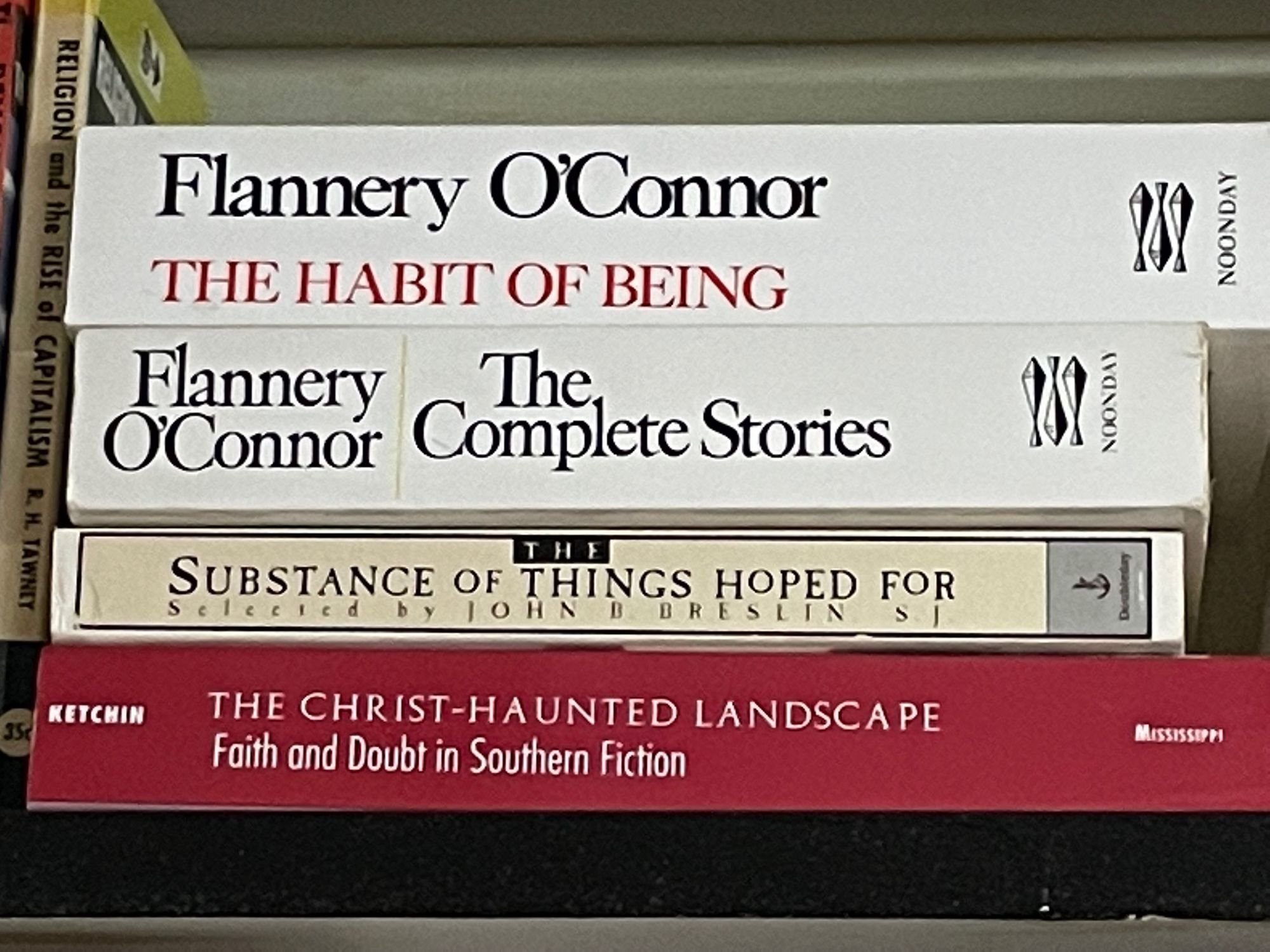
The essay quotes the story's opening passage about a peacock following Mrs. Shortley but completely misses the religious imagery. I suppose the essayist would tell me that her essay isn't about religion so it's not relevant, but I'm not convinced anyone can comment on a Flannery story without commenting on religion.
Anyway, if you read that opening passage, keep in mind that the peacock has traditionally been a symbol of the Resurrection and its eyes represent God's omniscience. The peacock follows Mrs. Shortley closely: God is stalking her, in pursuit, trying to impart His grace, but her eyes are focused on the red clay: the dirt, the immanence. She is in the metaxy but doesn't know it. She's oblivious to transcendence: she keeps her back to the bird.

For an excellent book about the meaning of Flannery's stories, check out Flannery O'Connor: A Proper Scaring, by Jill Baumgaertner.

Migraines
Do you suffer from migraines? Can you kinda feel them "coming on" the evening before? I do and I can. But I might have found a remedy: the ice head wrap. If I'm showing signs the night before that perhaps I have a migraine developing (incredible fatigue, irritability, a small headache) or if I've done things that seem to trigger a migraine (a hard weightlifting session, chocolate), I put this on. I haven't had a migraine all year (I know: it's early . . . . I'm not getting cocky . . . I'm knocking on every piece of wood I can find right now).
I don't wear it over my eyes (quite frankly, I forgot that it's supposed to be worn over the eyes). I put it on for as long as I can stand it (about 90 seconds), take it off for a minute, put it on for a few minutes, take it off again, then on for a third time and leave it on for ten minutes as it warms up.
It also seems to help my well-being in general. Normally, when I wake up, I have a minor headache or just feel "off." That's not the case when I do the "cold head" treatment the night before. I probably ought to do the cold head treatment every night.
January 28, 2023

January 27, 2023
The Gin Craze is Over
Gin distilleries are closing. Drinkers are looking for more exotic cocktails, and Diageo has officially declared the craze dead.
What's next? Well, maybe a dry phase. I hear a new teetotalling movement, fueled by increasing concerns about alcohol's deleterious effects and legal marijuana, is taking hold (it's all over Twitter).
Or maybe it's just rum's turn.
The rum and tonic? It's a thing. Google it yourself.

Casablanca
I went to my local auditorium to watch Casablanca. Whatta great film. During the Q&A afterward, I learned that the movie was rushed, often with scenes written the day before they were shot. I guess Bogart and Bergman didn't even know how it was going to end: would Rick or Victor get the girl?
What wasn't mentioned last night: Casablanca was almost desecrated a few decades ago:
Before their break-up and the box office success of Gigli, Ben Affleck and Jenifer Lopez were in talks to remake Casablanca.
Drinks mentioned at Rick's Cafe: bourbon, gin, wine, champagne cocktail, and cognac. I'm probably missing a few.
Bonus "fun" fact: Simone Weil spent time in Casablanca in 1942 (albeit at a refugee camp . . . not Rick's).
Second bonus:
Casablanca’s “As Time Goes By” shows how movies could turn preexisting songs into standards. The song, originally written for the obscure 1931 stage musical Everybody’s Welcome, was featured in Everybody Comes to Rick’s, the unproduced play on which Casablanca was based. (Max Steiner, who composed the score for the movie, did not care for the song, but by the time the producer Hal Wallis agreed to replace it, Ingrid Bergman had cut her hair for her next role, making reshoots impossible.) After Casablanca was released, the song became hugely popular, spending twenty-two weeks on the hit parade—and since it was published by Harms/Chappell, owned by Warner Brothers, the studio shared in the royalties. Link.
January 26, 2023
Paul Johnson, RIP
He was my favorite popular historian. I read Intellectuals on my honeymoon and relied heavily on it for my recent piece about Rousseau. His Modern Times is, IMHO, the best history of the twentieth century, a book I read thoroughly, have consulted repeatedly, and have even started listening to on Audible. I berate myself for never finishing his History of the Jews.
He's also Catholic, but he carried on a long-time extra-marital affair. I've never been able to reconcile it to the man I thought I knew through his books.

1054 Screwed Eastern Europe
Long-time readers know I really like the Orthodox Church. If only they hadn't left Rome. Now they're imploding. One big reason: birth control and abortion. Sure, they can blame other significant factors (like Marx), but the Orthodox Church's acceptance of birth control ain't helping matters.
One could object: "These countries have shockingly high rates of abortion. The Orthodox Church condemns abortion. It's not making a difference, so it wouldn't make a difference if the Orthodox Church condemned artificial contraception."
This rings true from a secularist angle, especially since these countries were ravaged by Communism and are now broken and poor. But abortion and contraception are intertwined. If a nation's largest church condemned contraception, birth rates would tick up at least a little and abortions would decrease. Just ask Humanae Vitae.
If you watch the YouTube video below, this part might be the most fascinating: The Ukrainians are killing their country, regardless of the Russians. Their demographics are terrible. On top of that, it just might be true that Russians are stealing Ukrainian children to bolster its own rotten demographics.
Dwindling population is the name of the game these days. It's why a geopolitical analyst like Zeihan is doing a multi-part series on it.
It's time we talk about a region that has long held the title of "worst demographics"...The Orthodox Christian countries.
The big dog of the region - Russia - has entered a point of no return for its demographic situation. Ukrainians are even worse off. Regardless of the outcome of this war - they'll end up with a s*** stew of demographics.
Other countries like Bulgaria and Romania aren't any better off. They've basically sent out all of their youth to other countries for economic opportunities...and even if they do return, they're not adding to the population once they reach their 40s and 50s.
Serbia had the opportunity to flourish into the most rapidly growing economy in the region. Still, they've made every wrong policy decision in the book...so no dice for them either.
Each of these countries will likely come face-to-face with its inevitable demise within the next 20 years, and there's not much they can do about it.
Belloc Meme
Another meme I made this morning. I'm killing it! (My aesthetically-inclined daughters squirm for me.)

January 25, 2023
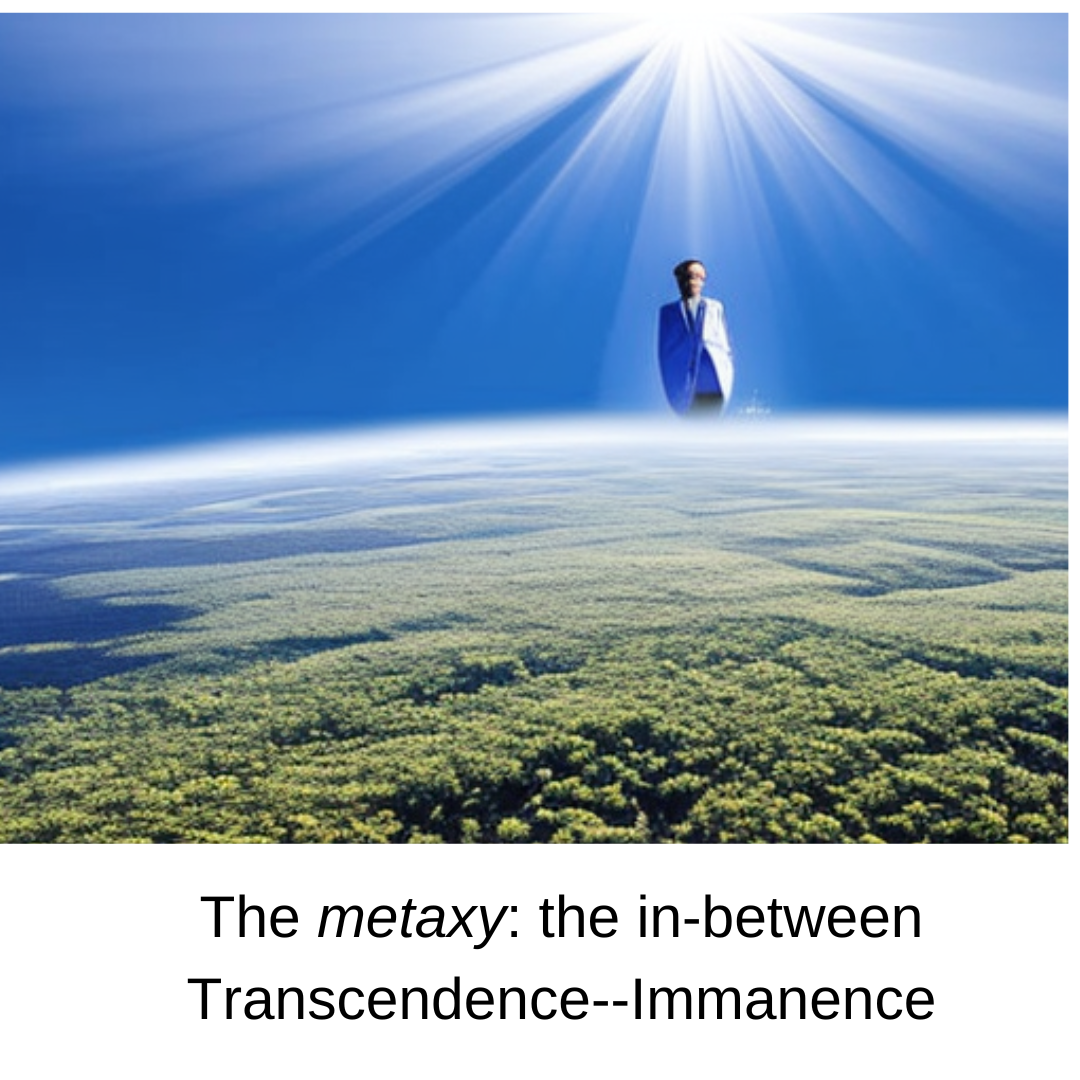
Metaxy Man
The metaxy is a crucial term in the Existence Strikes Back project. I even think maybe it's catching on. I'm thinking about rolling out a merchandise line called "Metaxy Man," but I don't know if that's a lame idea or a halfway decent idea if executed properly and I don't know anything about merchandising.
Regardless, here is a lengthy treatment of the concept from the highly-reputable Imaginative Conservative. Disclosure: I only skimmed it. I respect long-form essays, but I don't know why they're such "a thing" on the Internet. Google favors them in search engines. Medium.com favors them by putting the story in front of more readers (thereby generating more (literally) pennies). Me? If I'm going to read something that's more than, say, 1,500 words, I want to read it without blue light and pixels. Maybe that's just me.
BTW: I made that image above with Canva. I'm trying to become competent with it, as well as its AI-image generator.

January 24, 2023
The Man with Two Brains
No, not Steve Martin: Blaise Pascal. The heart has reasons guy. The guy who said some people think we have two souls. He had a mathematical mind and an intuitive one. But of course, he didn't have two brains or two minds or two souls. He just had two robust hemispheres. The left (mathematical) and right (intuitive).

January 23, 2023
The Third Gnostic Trait

January 22, 2023
Christopher Lasch
Christopher Lasch was an intellectually honest leftist. They're rare breeds today, but intellectual honesty used to be the hallmark of the academic left (one huge exception: Marxists . . . they've been intellectual swindlers since Karl).
Anyway, I need to read a lot more Lasch. This essay is a decent starting point, while his True and Only Heaven's 500 pages taunts me from the shelf, always reminding me that I stopped at page 72.
BTW: The essay comes from The Jacobin, which is pretty far left, with Marxist leanings I think, but they strike me as intellectually honest.

January 21, 2023
Courtesy of Friar David at Twitter
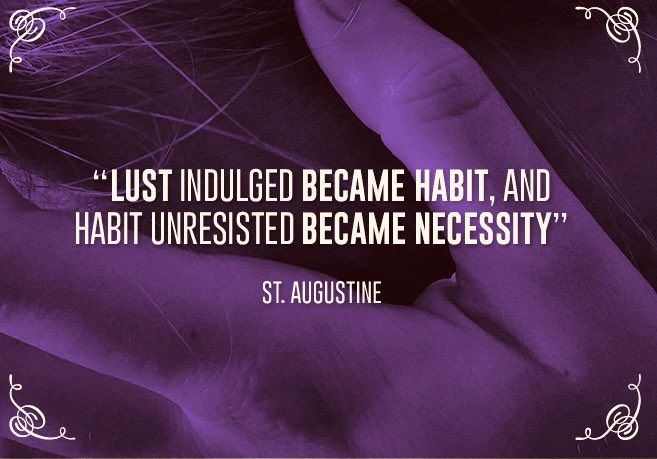


More:
https://twitter.com/FriarDavidOSsS
January 20, 2023
BYCU
If You're Looking to Get Ten-Year-Olds Drunk
It wouldn't surprise me if this become a new craze: adding candy to the gin and tonic. The following messages flowed in after a TikTok creater recommended that viewers add a lollipop gel to the gin and tonic:
"A slice of orange makes any gin and tonic even better."
A second added: "We use gummibears, yum!"
Elsewhere, a woman took TikTok by storm, sharing the perfect recipes for making Wetherspoons' iconic cocktails right from your home.
Paying homage to the popular pub chain, the thirsty TikTok user shared the recipes for a number of the bar's most popular cocktail pitchers, including Purple Rain, Ginberry Fizz, Blue Lagoon and Ultra Violet.
To make the Purple Rain cocktail, she recommends filling a jug three-quarters full with ice, adding 50ml of cherry sours, 50ml of blue Curaçao and pouring enough lemonade in to cover the ice cubes. Then mix the drink together and serve.

January 19, 2023
Pot Makes You Fine with Being Bored
"The truth is, marijuana probably isn't going to make you kill people. Most likely isn't going to fund terrorists, but pot makes you feel fine with being bored and it's when you're bored that you should be learning a new skill or some new science or being creative. If you smoke pot you may grow up to find out that you're not good at anything." Randy Marsh, character in South Park
That's one of the more insightful things that came out of last night's Men's Book Club meeting. I don't know how we veered from Dostoyevsky to South Park (and back again), but it's a good thing.
January 18, 2023
Fermented Plant Juice
It's incredibly cheap and makes use of pesky weeds. Apparently, the worldwide fertilizer shortage isn't ending soon, so ya better stock up and/or start making your own.

January 17, 2023
The Neo-Gnostic Will Embrace the Metaverse like the Ancient Gnostic Embraced Transcendent
Both gnostics (the neos and the modern) embrace a false view of reality because they both loathe the world.
The ancient gnostics believed the world is evil and they needed to escape it by getting to transcendence. Today’s “neo-gnostics” believe the world is evil and they want to escape by getting away from it . . . somehow, someway, anyway.
But the neo-gnostic doesn’t believe in transcendence, so he needs a different vehicle. Enter cell phones. Enter the Internet. And soon entering: the Metaverse, which will allow him to escape immanence entirely without embracing transcendence. His being will be online, not embodied in the real world.

January 16, 2023
The Weekly Column

If you subscribe to "Outside the Modern Limits," this is a repeat. As I mentioned last month, a weekly newsletter and substantive weekly column aren't sustainable (relevancy bonus points for contemporary word choice), so you'll occasionally see a shorter essay, or a mere newsletter piece, in the Monday column slot.
"The Gnostic's Third Trait" should be ready for publication next Monday.
Don't forget to subscribe to the newsletter if you haven't already. Please also forward the newsletter to friends.
January 15, 2023
A Survey of Hudge and Gudge in Action Over the Past 25 Years
I'm not saying John Rubino is correct in all the details, but the general flavor is definitely right. This crap has been occurring without shame since 1688 (when the Glorious Revolution put the powerful commercial interests in charge of government).
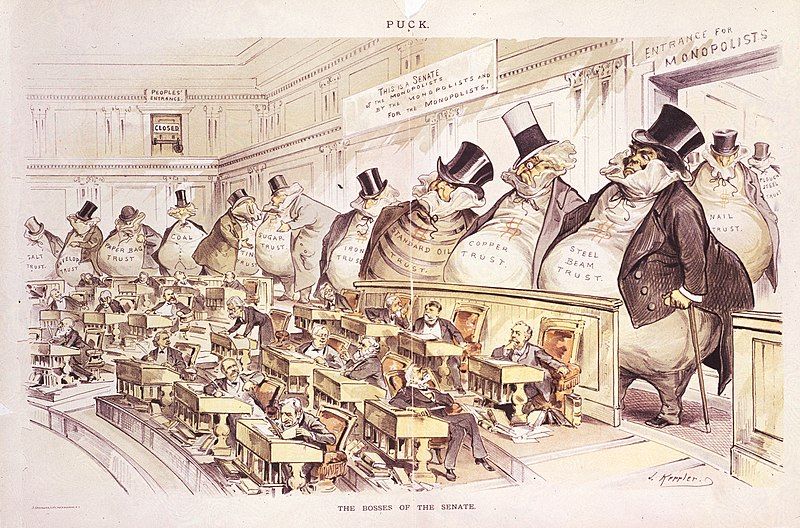
If you want to see it in its earliest forms, I doubt there's a better book than Belloc's Servile State. It's a classic. Kindle version is just 99 cents.
January 13, 2023
BYCU
I'm part-way through Charles Bukowksi's Notes of a Dirty Old Man. Whew, he was a reprobate. It's odd, though. He himself didn't seem to have any morals, but he appeared to get a kick out of describing the exploits of perverts, with the implication that they are, you know, perverts, which is something our reprobates can't seem to do today.

January 12, 2023
Anscombe
I've never read anything by Elisabeth Anscombe, but man, she's been getting a lot of ink lately.
I first ran across her in George Sayer's Jack: C.S. Lewis and His Times, where he recounts that she beat C.S. Lewis in debate at the Socratic Club on February 2, 1948. She "demolished" CSL's argument in Miracles for the existence of God. Miracles never sold as well as Lewis' other main books, probably thanks in part to Anscombe's demolition of it in 1948 (go to Amazon; you'll find one paperback edition by itself . . . you'll find a handful of Screwtape and Mere Christianity paperback editions).
For years, I figured Anscombe was just another atheistic modernist philosopher. Sayer wrote that, after debating Anscombe, CSL knew he had "underrated the difficulty of taking on the new school of Oxford philosophers"; "'Logical positivism' was the current mode, and 'linguistic analysis' was gaining popularity."
He never even hinted that Ansccombe was Catholic. It's very odd. I would assume that George Sayer merely suffered from the same the Belfast Syndrome that afflicted Lewis: He knew Roman Catholicism was right, but disdain for it was in his veins due the factional strife of his upbringing, resulting in a deep dissonance that can't be resolved until after death. But no. Sayer later converted.

January 11, 2023
I missed this great earlier piece:


Daughter in Gethsamani
The above photo is the Garden of Gethsamani. Middle daughter Meg (the one pictured here) took the picture last week during her trip to the Holy Lands. She prayed the first decade of the Dolorous here.

Today's Tweet
“The passions which agitate the Americans most deeply are not their political but their commercial passions.” de Tocqueville
Boy, I miss those halcyon days.
As socialism creeps in, politics does too. The political passions sway as more and more depends on what happens in DC. Commercial passions dwindle, much to culture’s harm. That’s not a paradox. The pursuit of money isn’t noble but it isn’t evil, either. It’s just a necessity, and the pursuit of necessities is rarely an occasion of sin.
“A man is seldom more innocently occupied than in getting money.” Samuel Johnson (attributed).
January 10, 2023
Ehrlich Thinks I'm the Devil
And that's alright. I think he, at least in his public pronouncements, is one of the most buffoonish characters of the 20th century. Ehrlich says children are bad. I respond with a lot of children and grandchildren, much like Johnson kicking that rock. Economists simply take him apart.

January 9, 2023
Gnostic Trait Number Two
I continue to review each of the six gnostic traits that Eric Voegelin laid out in his later work, Science, Politics, and Gnosticism.

January 8, 2023
The End of Creative Writing?
Chat GBT is the rage. Max (a freshman) tells me it's the rage at the University of Michigan. It apparently writes a high school freshman level. One of Max's professors says it writes better than about a third of his freshman students.
He ran a Chat GBT essay for me about Iain McGilchrist. It is, I'm afraid to say, pretty good.

January 7, 2023
Outside the Modern Limits
Did you miss this morning's "Outside the Modern Limits"? Oh the shame! But don't worry. You can remove that Scarlet L from your breast. Just subscribe here.
OtML is dedicated to shrinking your left hemisphere so you can thrive in the modern world. As a practical matter, OtML is largely diarological (is that a word?). They're memos to myself as much as advice to subscribers.
From 1903
“I have not yet looked at the Internet. Generally I leave it till I come back tired from my walk; it amuses me then to see what the noisy world is doing, what new self- torments men have discovered, what new forms of vain toil, what new occasions of peril and of strife. I grudge to give the first freshness of the morning mind to things so sad and foolish.”
That’s Henry Ryecroft, describing one of his ordinary (read: enchanted) mornings after he received a small annuity and decided to retire early and live out his remaining days in simplicity: walks, gardening, and reading. He’s the protagonist in George Gissing’s 1903 novella, The Private Papers of Henry Ryecroft. (A steal at 99 cents if you have a Kindle.)
I modernized the passage a bit: I substituted “Internet” for “newspaper.”
Addendum: "Protagonist"
I suspect "protagonist" is one of those terms that most people vaguely know. It just means "the chief character in a play or story." The Concise Oxford Dictionary of Literary Terms (1990).
January 6, 2023
Is It Safe to Go into the Beer Cave Again?
I don’t want to say “Good riddance,” but if the craft beer craze is dying out, or a least leveling out, I’m grateful.
Really, it had just gotten to be too much. And that was back in 2010.
That’s one thing the free market does well: tsunamisizes anything that catches on. My small town had one coffee shop for years. In the past three years, four more have opened. Subway has been ubiquitous for years; now there’s Jersey Mike and Jimmy Johns too. Popular songs get played until listener suicides start climbing. The Sopranos was great. Now there are so many great mini-series, we can’t find enough good actors (judging from the horrendous acting I see from the bit roles these days). Just a few years ago, Joe Rogan was encouraging people to start podcasts. Now he concedes the deluge is just too much.
And a few well-intentioned beer fans who couldn’t handle another Bud Lite created a monster craze that, quite frankly, got tiresome over a decade ago.
But it’s dying out.
Because that’s one thing the free market does even better: subsides and levels out as supply overwhelms demand.
One can wish it were a bit more timely, but it's lightning quick compared to, say, a comrade in Moscow making the decision.

January 5, 2023
Taibbi Twitter Take
I couldn't bring myself to wade through the numerous Tweets, but Tom Woods has appeared to have provided a good summary of what Taibbi found. It sounds like flagrant First Amendment violations, which give rise to remedies under Section 1983 (and also a potential "Bivens" claim).
I'd think the Twitter folks who acted in concert with the feds to deprive people of their First Amendment rights are sweating, but any such claim would have a loooooong way to go, with all sorts of complex angles and detours.
The principal statutory basis for remedying violations of citizens’ constitutional rights through the courts is 42 USC 1983, which is commonly referred to as §1983. §1983 also allows a citizen whose federal statutory rights have been infringed by a state or local law or practice to bring suit to protect those rights. §1983 was originally adopted as part of the Civil Rights Act of 1871 and was designed to protect African Americans from the deprivation of their rights and violence being perpetrated by the Ku Klu Klan at that time.
§1983 allows a vast spectrum of suits against people who violate federal constitutional and statutory rights under color of state law, ordinance, regulation, policy, or custom. . . .
There are basically three types of proper defendants:
local governments or their agencies
state and local governmental officials sued in their individual capacity (this includes police officers) acting under color of state law
private individuals or private businesses who acted in concert with people acting under color of state law or who acted personally under color of state law
Maine v Thiboutot, 448 US 1 (1980); see also Monell v Department of Soc Servs, 436 US 658, 690 (1978).

January 4, 2023
One Blessing of January: Silence
"Silence puts man to the test."
"That is what silence itself is: holy uselessness."
"The mark of the Divine in things is preserved by their connection with the world of silence."
"The man who lacks the substance of silence is oppressed by the all-too-many things that crowds in upon him every moment of his life today."
Max Picard, The World of Silence



January 3, 2023
Stewart Brand: CIA agent?
That’s what Jude Russo ponders in his review-essay John Markoff’s Whole Earth: The Many Lives of Stewart Brand. The Lamp.
Brand was a hippy icon (“the intellectual Johnny Appleseed of the counterculture”). He published the #Whole Earth Catalogue, a literary catalog whose statement of purpose read, “We are as gods and might as well get good at it” (which is also the name of a 2021 documentary about Brand that can be rented on Amazon for $5.99). It featured products that appealed to the off-grid flower children as their 1960s came to a close: peyote manuals, knives, wine-making supplies, Mennonite clothes and mechanical calculators.
So Brand was just another far-leftist that now cheers for BLM, right?
Apparently not.
He described himself as a “conservative."
These days he’s mostly interested in “using dark genetic arts to revive the woolly mammoth.”
Russo asks compelling questions about Brand, starting with, “Why didn’t Markoff, a capable biographer, answer any of the obvious questions raised by Brand’s life? How did the rich kid join R.O.T.C. and served his two years, but then blow off his Army Reserve duties (with no consequences)? Why was he in the counter-culture but always separate from it? Why did Ken Kesey denounce him as a power worshipper and Sweden socialists as a C.I.A. plant?
Anyway, the essay is highly recommended, even if it ends with a bizarre three paragraphs that, try as I might, I couldn’t parse.

January 2, 2022
The Hopper Collection at the Whitney Museum of American Art
“Edward Hopper (1882–1967) was the painter of small-town America. This we know. That his small town happened to be New York City, his home for nearly sixty years, we may not know.”
Link.
New York: Small town. It’s a sentiment I’ve seen repeatedly . . . in Seinfeld reruns. Every neighborhood is its own small town: the neighborhood fruit stand, magazine stand, dry cleaner. If you watched All in the Family, you have empirical proof that every New York neighborhood has its own bar.
Hopper loved New York. He liked to walk it, reminding me of 2011’s Open City, a bit of David Duchovny’s The Reservoir, and E.B. White’s Here is New York, a short walk through NYC in the 1940s that feels like a walk today (well, at least before 2020).
If you’ve long been a fan of First Things, you will probably recall that Fr. Richard John Neuhaus was a relentless celebrant . . . of New York City, often using his rambling whimsical column to defend it against charges that it’s just another big city or the small towns are better. He once counted the birds in his apartment complex’s courtyard and challenged his small-town readers to identify more than he did.
This Hopper collection sounds incredible. The Whitney has even published a book about its collection (it’s cheaper than flying to NYC and paying admission, but wow: $58).
Added pleasure: Hopper detested FDR's New Deal.
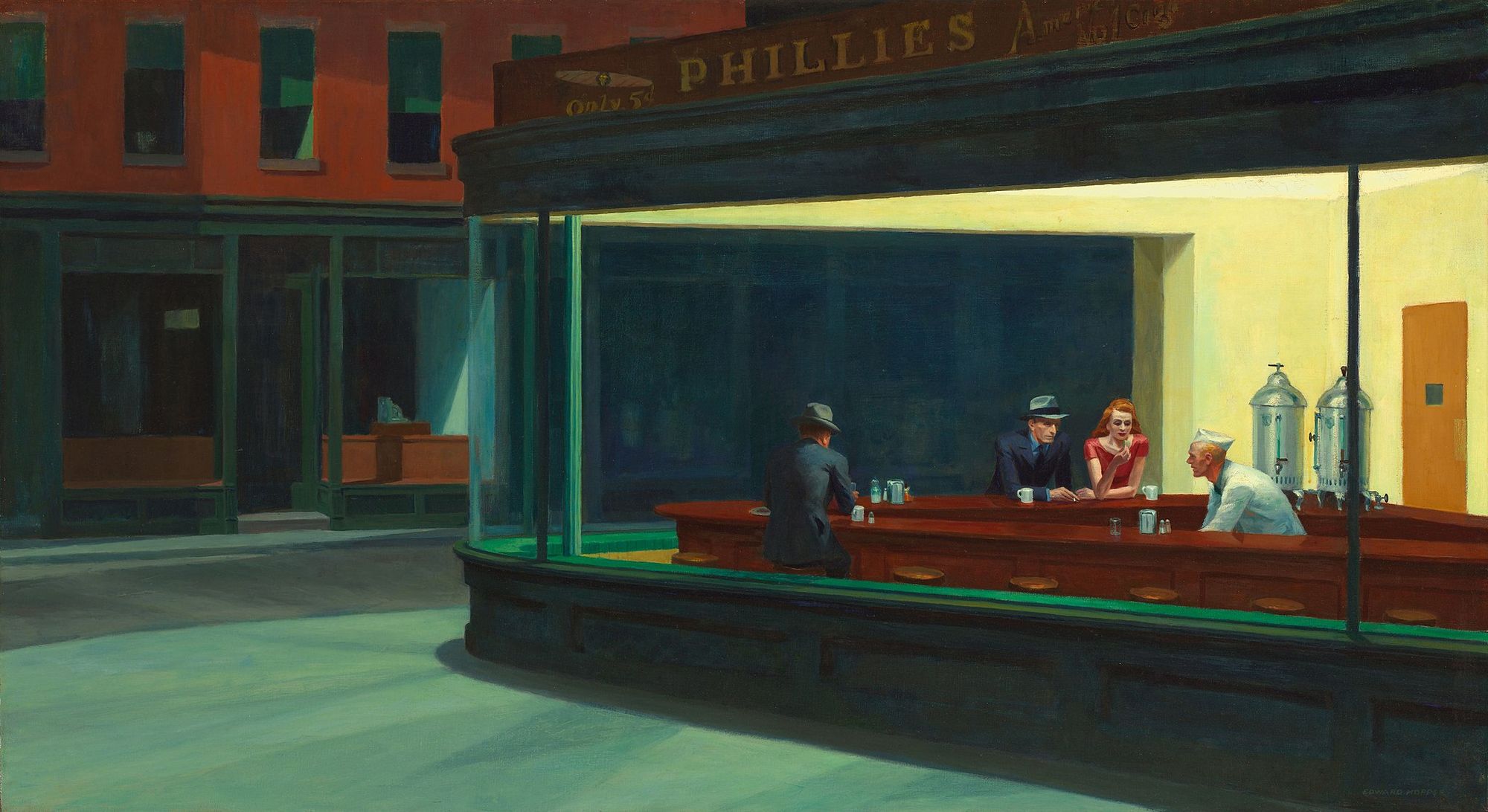
Enigma Solved: Albert Jay #Nock was a Taoist
Tolstoy was fascinated with the leadership of General Mikhail #Kutuzov, whom he celebrated in War and Peace. Tolstoy was also fascinated with the #TaoTeChing, which he translated into Russian (from a French translation).
The Tao Te Ching says that you don’t have a good governor when people say, “our governor is good,” but when they ask, “do we have a governor?”
When the Freeman magazine closed, Albert Jay Nock’s friend, Edward Epstean, told him, “You’ve done a great deal for all those young people.” Nock replied, “I don’t know that I’ve ever done anything for them except leave them alone.” “Yes,” said Epstean, “but if someone else had been letting them alone, it would have been a very different story.” Crunden, The Mind & Art of Albert Jay Nock, 16.
Nock’s most famous essay is probably Snoring as a Fine Art, which celebrated the art of doing nothing . . . as illustrated in the leadership of General Kutusov.
https://newcriterion.com/issues/2022/12/a-taoist-sage-on-horseback
https://ericscheske.medium.com/why-we-need-to-resist-the-world-of-pure-action-ed1fcc021c97
Enigma Solved: Albert Jay #Nock was a Taoist
— The Eudemon (@TheDailyEudemon) January 2, 2023
Tolstoy was fascinated with the leadership of General Mikhail #Kutuzov, whom he celebrated in War and Peace. Tolstoy was also fascinated with the #TaoTeChing, which he translated into Russian (from a French translation).
Benedict XVI's Spiritual Testament

Lou Holtz's Three Rules of Life
Don't tell people about your problems. Ninety percent of them don't care. . . The other 10% are glad you have them.
Holtz spoke to my law school class at Notre Dame. He's one of the best speakers I've ever seen. The lecture is excellent, but if you just want to know the three rules:
- Do What Is Right
- Do Everything to the Best of Your Ability
- Show People that You Care





